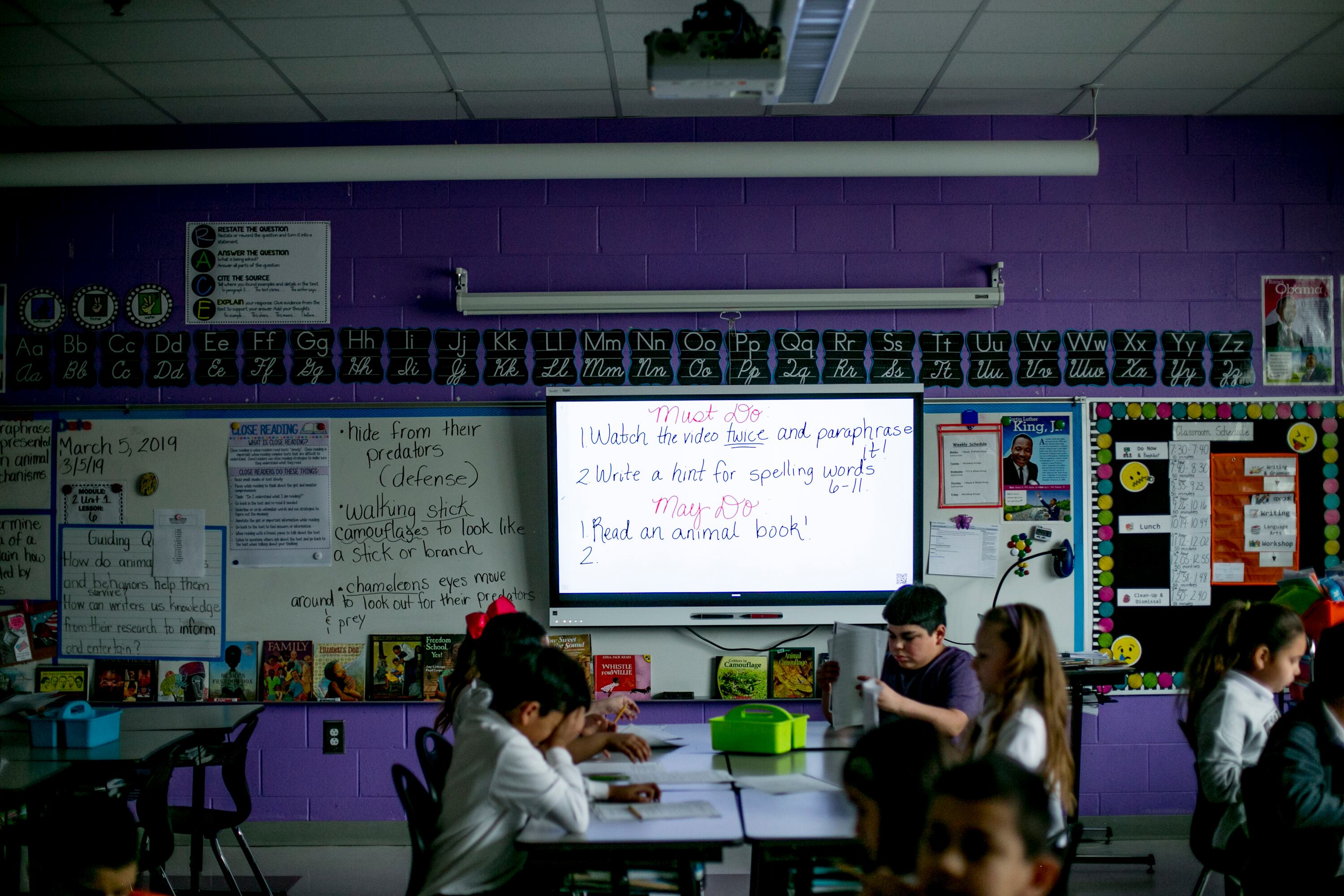The Detroit literacy lawsuit didn’t yield a Constitutional right to read, but it wasn’t a total loss for the students who argued that Michigan had failed to provide them with a basic education.
Democratic lawmakers introduced bills Monday that would send $94.4 million to the Detroit Public Schools Community District, making good on a key piece of the lawsuit settlement that already has brought millions of dollars to the city’s students.
Under the settlement, Gov. Gretchen Whitmer promised to attempt to get the money from the legislature every year for as long as she remained in office.
The seven student plaintiffs argued that the Detroit district failed to teach them to read. The district’s fourth-grade reading scores are consistently among the lowest in the country. Advocates hoped that the money would help raise those scores and ensure that no more students received a high school diploma in Detroit despite lacking basic literacy skills.
“There should not be an expectation that this is all we’re going to do around literacy,” said Sen. Adam Hollier, a Democrat who filed one of the bills in the senate. “This is a downpayment,” he said of the $94 million.
Michigan policymakers have been deeply divided over school spending for decades. Democrats say the state’s investment in education has withered, accounting for inflation. But there’s been little sign that the Republican-controlled legislature is willing to undertake a funding overhaul. The pandemic has further divided Lansing. In recent months, the legislature and Whitmer, a Democrat, have done battle over the fate of billions in federal coronavirus aid.
Further complicating the path of the legislation, which hasn’t yet been debated in the legislature, the Detroit district is set to be a major beneficiary of the federal aid.
The literacy lawsuit, which was filed in 2016, ended last spring in a dramatic series of legal twists and turns. When the dust settled, a federal court had invalidated the notion that the Constitution guarantees a right to read, which education advocates have long sought to establish.
Nonetheless, the state agreed to settle the lawsuit out of court on the following terms:
- Whitmer would support legislation — and continue supporting it for as long as she was governor — that would send $94.4 million to the Detroit district for literacy programs.
- The state lifted restrictions on the district’s power to raise badly needed funds from local taxpayers.
- The state created a Detroit panel that would advise her on education policy.
- The state paid $2.7 million to the district immediately for literacy programs
- The seven student plaintiffs in the lawsuit each received a share of $280,000 to continue their secondary educations
The literacy lawsuit centered on the collapse of basic services in the Detroit district while it was under the control of the state. Textbooks were out of date, schools were understaffed, and school buildings were falling apart.
“We’re talking about equitable funding because of the way our children have been discriminated against,” said Helen Moore, an education activist who supported the lawsuit. “Our children deserve a lot more than that. The struggle is not over.”






